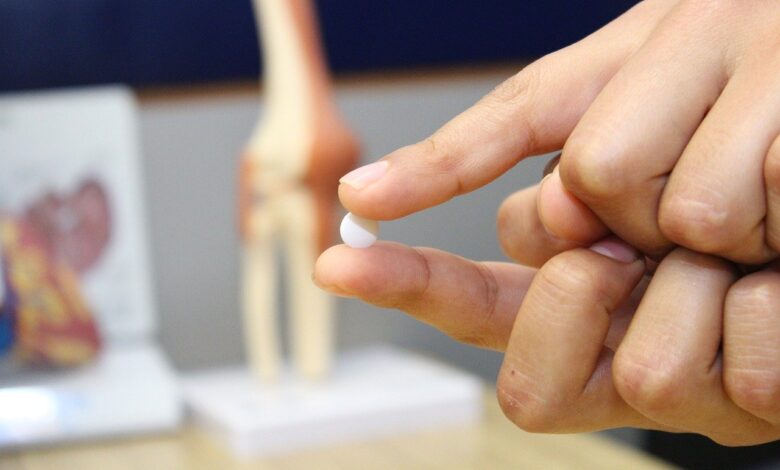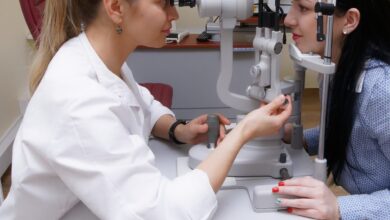Impotence Specialist Options for Treating Sexual Health Issues

Impotence is a common ailment among many men characterized by the consistent failure to keep an erection sufficiently long enough for intercourse or the inability to attain ejaculation or complete sex, or both. Impotence is also known as erectile dysfunction. Impotence may range from temporary problems to permanent conditions. It can involve either a weak ability to attain an erection, a consistent inability to do this, or a habit of just holding off ejaculation.
Causes of Impotence are various. They can include a number of things, including but not limited to, psychological conditions such as depression, stress, anxiety, and past trauma. Physical causes may include certain types of physical problems, such as those involving the spine, the heart, the nervous system, and the reproductive system. In some cases of impotence is caused by hormonal or chemical imbalances, and it can also be a side effect of certain medications.
Other physical causes of impotence include certain types of illnesses, the results of some medical treatments, or the buildup of too much physical fatigue. The accumulation of physical toxins in your body, such as excess sodium, can also be a contributing factor to impotence. Living a healthy diet and exercise program can help combat these causes of impotence and lead to a healthier you.
Other physical causes of impotence are vascular diseases, which include high blood pressure and coronary artery disease. Impotence also can occur as a result of some types of cancers, and physical stress or fatigue (such as excessive body fat). Some cardiovascular diseases, such as atherosclerosis and heart disease, also are associated with impotence. The treatment for these conditions varies according to their severity. Cancer is treated differently than heart disease, for example.
Impotence may also be caused by a condition called multiple sclerosis, which is the symptoms of which are similar to those that are associated with ed. Multiple sclerosis can affect the central nervous system, causing inflammation throughout the body. In addition, and can be caused by multiple sclerosis. Impotence is more common in those who have multiple sclerosis, and in some cases it can even be a cause.
Impotence does not always mean that the person will suffer from a physical condition or ailment. Some people experience erectile dysfunction without being physically impaired. While impotence is sometimes associated with certain physical problems or diseases, it is not the only thing that you should consider when it comes to this issue. Impotence is something that you may want to talk with your doctor about as well, or consider contacting a men’s doctor for ED and PE treatment in Orlando if you do not feel comfortable visiting your family doctor about this issue. Impotence and sexual health issues are two things that you may want to discuss together.
Impotence is often accompanied by several symptoms. These symptoms generally occur in conjunction with decreased sexual desire, diminished reaction time when sexual stimuli are encountered, and decreased libido. Impotence is usually defined as any condition in which a man has either difficulty achieving or sustaining an erection or loses the ability to achieve or sustain an erection. In males, impotence can range from being mild (with ejaculatory control) to severe (with complete lack of ejaculatory control). This article will discuss the most common forms of impotence and the medical interventions that may be recommended for them.
Impotence is frequently associated with other psychological conditions, such as depression or anxiety. Psychological conditions such as these are most commonly treated with counseling and possibly medication. However, there are some psychological conditions which may lead to or exacerbate impotence, including high blood pressure (hypertension), heart disease, diabetes, stroke, and some types of cancer.
Impotence is also commonly associated with physical causes. Impotence can be caused by physical factors such as disease, injury, or trauma. Some physical causes of impotence are infection, neurological damage, and brain defects. Impotence can also be caused by psychological factors such as low self-esteem, fear of sex, or guilt over not performing sexually. In some cases, impotence may be related to another medical condition such as diabetes or high blood pressure, which can lead to complications such as cardiac disease, high blood pressure, stroke, or anxiety.
The risk of developing impotence is increased if alcohol use or medications are present in the patient’s history. Alcohol use can impair sexual function by reducing sperm motility and increasing sperm mortality. It can also reduce the production of sperm. Research has shown that men who consume large amounts of alcohol on a regular basis have a higher risk of acquiring impotence than men who do not use or do not take medications that can affect fertility.
Impotence can also be related to an unhealthy lifestyle. Men who smoke or use drugs that affect circulation, oxygen levels, cholesterol levels, or muscle mass and blood flow are at higher risk for impotence than men who consume a healthy diet, maintain regular exercise, and engage in low-risk activities such as yoga, swimming, or gardening. Men who consume alcohol on a daily basis are at a greater risk for alcohol use and blood vessel damage, which can result in erectile dysfunction. A healthy diet and regular physical activity can help prevent these conditions.
Impotence can have a negative impact on the quality of life of men with impotence issues. Impotence treatments can range from simple lifestyle changes to more complex medical treatments. If your doctor does not believe that you are suffering from impotence and is considering one of these other treatments, ask about the different options. You may want to try using vacuum devices or permanent male enhancement products to treat your impotence as these other treatments can lead to negative side effects and harm your health even more.






